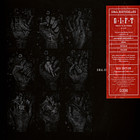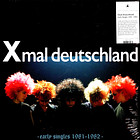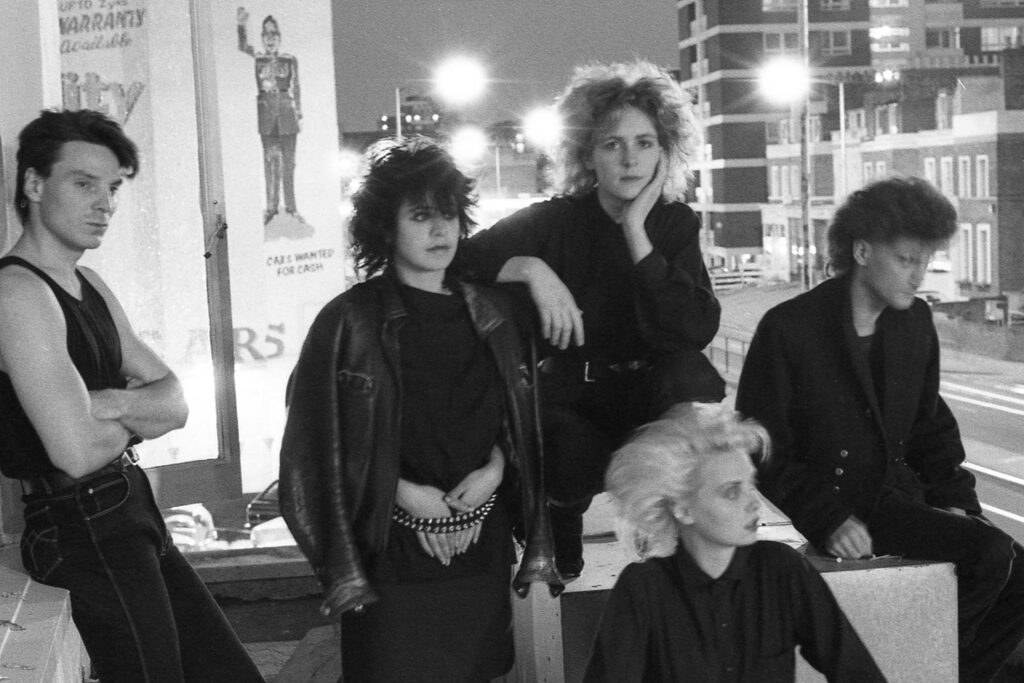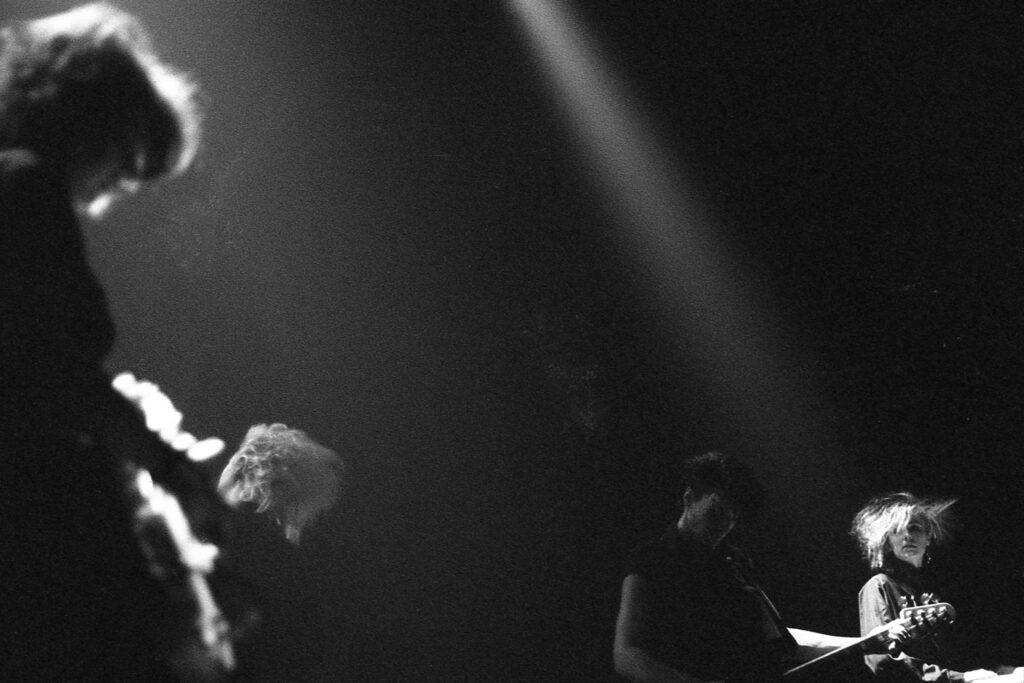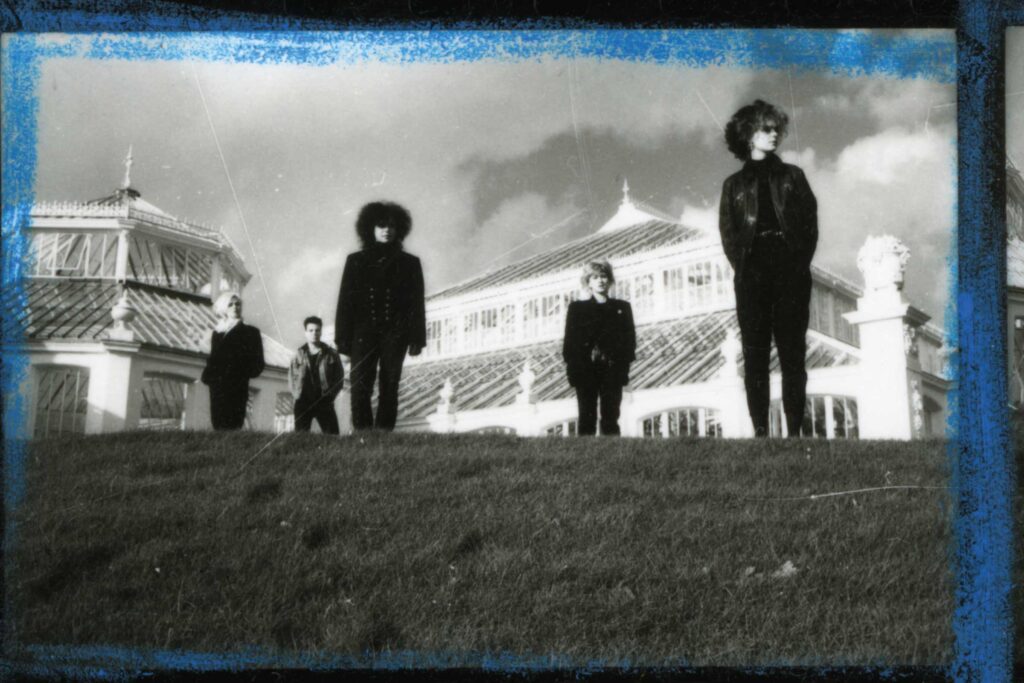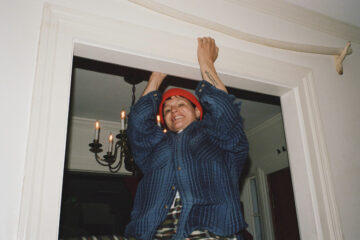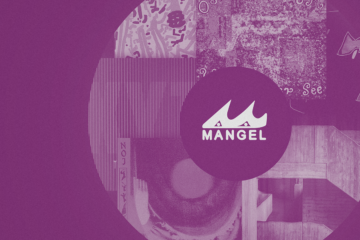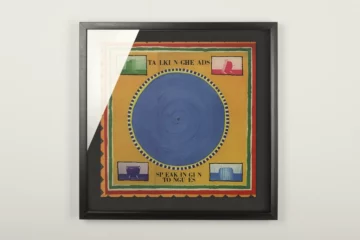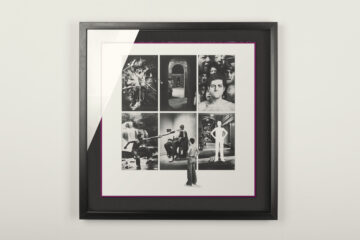Scrolling through the comments beneath old Xmal Deutschland videos, you’ll find two types of reactions: some describe how life-changing the Hamburg band was for them in the 1980s; others express disbelief that they’d never heard of this band before — despite the sound aligning perfectly with their tastes.
No surprise there: Xmal Germany hasn’t released anything since 1989. Their legacy, then, lies in the mystery of how a short-lived career left deep marks across generations without ever fully settling into the broader cultural consciousness. In 2025, former frontwoman Anja Huwe returns with The Gift (The 4AD Years), a time capsule that revives Xmal Deutschland’s intensity while preserving the aura of their enduring appeal. “We shaped this time and that’s a good reason to put out this release, says Huwe today, summing up why Xmal Deutschland has lost none of its power forty years later.
Just do it differently: The birth
Xmal Deutschland was born in 1980 in a Hamburg scene still governed by traditional life paths. Making music supposedly required talent or formal training — at least by conventional standards. That didn’t apply to Anja Huwe and her fellow band members Manuela Rickers, Fiona Sangster, Rita Simonsen and Caro May. Inspired by the punk ethos of the time, they embraced a DIY mindset and rejected convention. »We couldn’t really play or sing — but that’s what everyone was like back then,« Huwe recalls. So they just did it.
Hamburg at the time offered little for young people who didn’t identify with stars like Udo Lindenberg. Real inspiration came from small clubs where English punk and alternative bands performed. Different currents blended there, with audiences full of punks, outsiders and free-thinkers. In this open atmosphere, an early artistic self-image emerged: not through virtuosity but through expression, attitude and determination. Music, art, subculture — everything followed the same principle: do it, don’t wait for permission.
Anything but funny: The Early Years
Despite the openness of the Hamburg underground, Xmal Deutschland was met with initial scepticism. »Everyone knew each other,« says Anja Huwe, »and I think some found it rather amusing that it was us girls starting a band.« Acceptance was there, but real recognition took time. That only came slowly with their first releases on the Hamburg label ZickZack. »You’d hear the usual comments: ‘Well, they’re girls, obviously they’re successful because they’re pretty.’« But Huwe was unfazed: »If that’s how you see it, that’s your problem.«
»You had an idea of what you wanted to do, but you were also limited because you couldn’t actually do it.«
Anja Huwe
Their musical orientation stemmed mainly from live experiences: The Cure, Psychedelic Furs, and the eclectic energy of bands like The Clash, who fused punk with reggae. Xmal Deutschland didn’t consciously define their style in those early days. »You had an idea of what you wanted to do, but you were limited because you didn’t really know how,« Huwe says. Playful or humorous elements, as seen in the Neue Deutsche Welle later on, were never an option. »NDW was the funny stuff. That was never our thing.«
From Fetish to Full-time: The 4AD Years
The turning point came when a tape from Xmal Deutschland caught the attention of UK label 4AD. »They received a cassette from us and were soon in Hamburg,« remembers Anja Huwe. Soon after, the label invited them to England to record at the legendary Blackwing Studio. There, they created their debut album Fetisch, released in 1983 — sung entirely in German — and met with surprising enthusiasm from UK audiences. »These five Teutonic girls appeared with this wall of sound — they were completely stunned. They couldn’t believe it and some loved it.«
Their partnership with 4AD opened international doors: tours through Europe, the US and Japan followed. But with success came change. What started with spontaneous passion turned into structured routine. »Playing a few gigs? Great. But Europe, America, Japan? That’s a different league. You really have to conserve your energy.« Their second album Tocsin (1984) saw a stylistic refinement: still dark and brooding, but more compact and structured.
Their 1985 EP Sequenz – based on a BBC Peel Session – showcased the band’s rawer, more direct side and captured their immense live energy. Demand kept growing, but the relentless schedule took its toll. What began as a rebellious project among friends had become a full-time job.
Between success and strain: The beginning of the end
Joining major label Phonogram brought opportunities — and expectations. »The label had its ideas about how we should evolve,« Huwe recalls. A major publisher added another layer of pressure. Within the band, harmony persisted at first, but the dynamics began to shift. »You’re together all day, all night. It’s fruitful at first. But after a while, compromises wear you down.«
»At some point you have to start working more professionally. Every day in the rehearsal room, writing songs – and not just seeing how it goes«.
Anja Huwe
Structural changes in management only deepened the transformation. The team behind Xmal Deutschland — which also represented bands like Simple Minds — began prioritising other interests. What once thrived on close bonds turned into a machine prioritising efficiency over human connection. »Eventually, you have to get more professional. Into the rehearsal room every day, write songs — not just see how it goes,« says Anja Huwe.
Enough is enough: The band dissolves
After seven intense years, exhaustion set in. External pressures grew, especially on Huwe as the front figure. As with Björk and the Sugarcubes, she was encouraged to pursue a solo career. But she refused. »I never saw myself as the singer. I was one fifth of Xmal Deutschland.« Her political stance clashed with the branding ideals promoted by labels. After releasing Viva and undergoing several lineup changes, the band issued a final record in 1989: Devils, a darker, more polished production that hinted at a shift in direction.

But Huwe refused to be repositioned as a solo act. »I never saw myself as the singer. I was one fifth of Xmal Deutschland.« Her political sensibilities didn’t align with the roles that labels were eager to promote. After the release of Viva and the departure of several founding members, the band issued a late musical statement in 1989 with Devils, recorded in a changed line-up and featuring a new sound. By the early 1990s, Xmal Deutschland had officially dissolved. »It was a logical consequence. We simply said: that’s enough.«
Myth and attitude: A lasting legacy
Xmal Deutschland made a lasting impression in the ’80s but remained largely overlooked by the wider public. That is part of their myth. They inspired generations in dark wave and post-punk circles, but never sought the mainstream. Their sudden disappearance after a handful of albums only intensified their ghostly allure.
Related reviews
U.S. Girls
Scratch It
Maria Somerville
Luster
Jenny Hval
Iris Silver Mist
Xmal Deutschland
Gift: The 4AD Years
With the reissue of Gift (The 4AD Years), a circle closes in 2025. For Anja Huwe, it’s more than nostalgia: »I see this as my intellectual legacy.« Making the early albums available again feels like a duty: »I’m glad it’s back — the world should have it again.« After the band, Huwe remained active: she turned to visual art and developed a distinct musical voice as a solo artist. Four decades after their beginnings, she returns with Gift (The 4AD Years) — and with it, the story of Xmal Deutschland.


